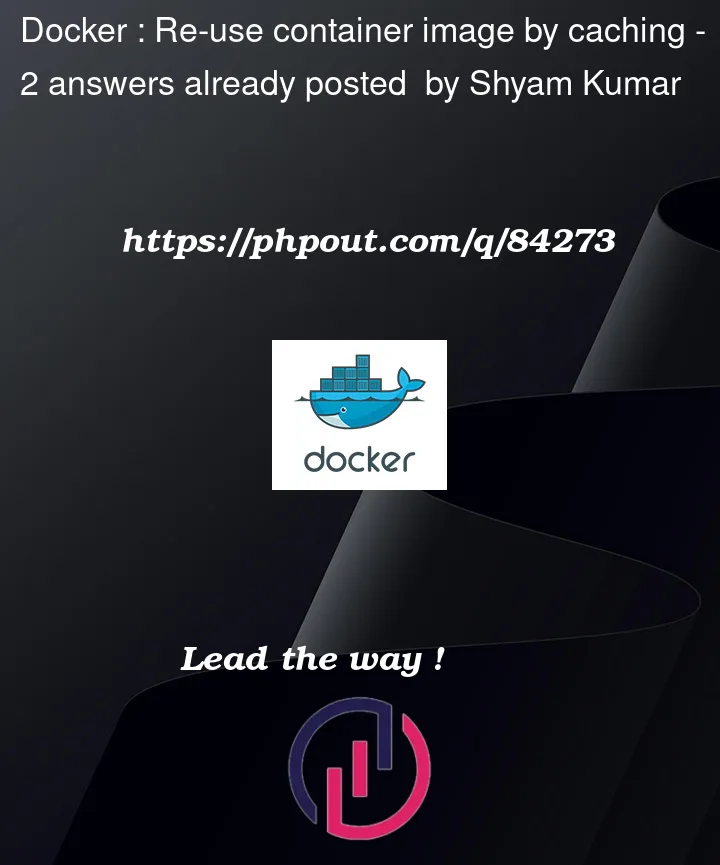Here I have two workflows under a job. The only target we want to achieve is that, we want to reuse the container images by using cache or some other means. Similar way we do for node_modules
jobs:
build:
name: build
runs-on: [self-hosted, x64, linux, research]
container:
image: <sample docker image>
env:
NPM_AUTH_TOKEN: <sample token>
steps:
- uses: actions/checkout@v2
- name: Install
run: |
npm install
- name: Build
run: |
npm build
Test:
name: Test Lint
runs-on: [self-hosted, x64, linux, research]
container:
image: <sample docker image>
env:
NPM_AUTH_TOKEN: <sample token>
steps:
- uses: actions/checkout@v2
- name: Install Dependencies
run: npm ci
- name: Lint Check
run: npm run lint




2
Answers
In general, data is not shared between jobs in GitHub Actions (GHA). jobs actually will run in parallel on distinct ephemeral VMs unless you explicitly create a dependency with needs
GHA does provide a cache mechanism. For package manager type caching, they simplified it, see here.
For docker images, you either can use docker buildx cache and cache to a remote registry (including ghcr), or use the GHA cache action, which probably is easier. The syntax for actions/cache is pretty straightforward and clear on the page. For buildx, documentation always has been a bit of an issue (largely, I think, because he people building it are so smart that they do not realize how much we do not understand what is in their hearts), so you would need to configure the cache action, and then buildx to cache it.
Alternatively, you could do
docker save imagename > imagename.tarand use that in the cache. There is a decent example of that here. No idea who wrote it, but it does the job.I would suggest using the Docker’s Build Push action for this purpose. Through the
build-push-action, you can cache your container images by using the inline cache, registry cache or the experimental cache backend API:Inline cache
Refer to the Buildkit docs.
Registry Cache
Refer to Buildkit docs.
Cache backend API
Refer to Buildkit docs.
I personally prefer using the Cache backend API as its easy to setup and provides a great boost in reducing the overall CI pipeline run duration.
By looking at the comments, it seems you want to share Docker cache between workflows. In this case you can share Docker containers between jobs in a workflow using this example: